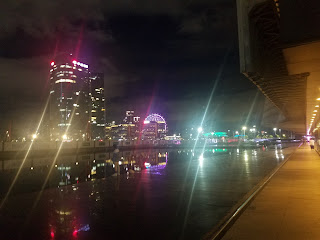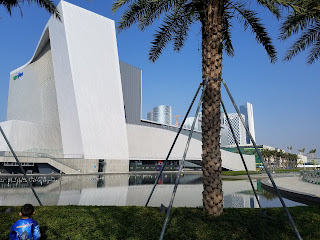In chronological order, the last being the most recent, just the day before!
September 6, 2024, CCCH
September 6, 2024, CCCH
HKPO - Peltokoski - Lozakovich
Sibelius - Bruckner
Typhoon derailed this Friday concert, which was rescheduled to an unusual 4 pm the next day (and the HKPO had to play the 8 pm concert too). The 2 Scandinavian artists delivered as satisfying as concert as one could hope for.
I have long followed Daniel Lozakovich (excellent albums on DG), and particularly admire his tonal allure. From the first note of the Sibelius VC, it was clear that he was everything the recordings conveyed (not true for many soloists unfortunately). Great projection, ravishing tone and nuance at any dynamic level (most violinists sound pinched as they go high or loud). Great rhythmic resilience and fire. The orchestral contribution was tight and it was as perfect a performance as one could hope to hear!
Although I regard myself as fairly well informed, I had never heard of very young Tarmo Pelkotoski until his appointment as HKPO's next director. Then came his somewhat idiosyncratic debut album of Mozart (DG). I was told by a friend with trusted ears that he had done well with the HKPO before, so I had high hopes.
Although I regard myself as fairly well informed, I had never heard of very young Tarmo Pelkotoski until his appointment as HKPO's next director. Then came his somewhat idiosyncratic debut album of Mozart (DG). I was told by a friend with trusted ears that he had done well with the HKPO before, so I had high hopes.
I was not disappointed. The Bruckner 9 played out with great tonal weight and good flow. Yes, the third movement for me lacked angst and enough dissonance at its height of tension. More looking forward and reminiscence than confronting death. But then, many seasoned Bruckner conductors fail too at that (in my view; my benchmark is Schuricht/VPO). Very grateful to have heard B9, and I'm looking forward to more!
September 27, 2024, CCCH
HKPO - Petrenko - Fedorova
Rakhmadiyev - Grieg - Bruckner
This concert was absurdly and prominently billed as "Belt and Road". Huh? Perhaps to justify the wayward claim, concert opened with Kazakhstan composer Rakhmadiyev's Kudasha-Duman. A frivolous soviet-era piece with predictable rousing rhythm and cacophony.
Anna Fedorova is well known to me through her recordings, which have all been good but not exceptional. Her playing revealed a plain tone, lacking in sonorous depth. Her playing of the Grieg PC was curiously wayward in places, especially in the finale's marcato section, where her rhythm was downright unnatural. The orchestra was razor sharp in response, thought the woodwinds lacked warmth and elan. Overall, this rendition very much lacked the headlong ardor this piece should possess.
I've long admired and followed Vasily Petrenko on records (seminal Shostakovich cycle on Naxos; many good recordings on Onyx and Lawo), but I was not sure at all how he would be in Bruckner. I remember his NYC and HK appearances very well. In recent times, he has had a few well received outings with the HKPO, which I've missed.
The Bruckner 7 surpassed all expectations! From the opening, Petrenko showed his exceptional ability to tease out all the string parts (so important in this symphony) in a natural manner. Yes, I heard many things new in this thrice familiar score. Everything flowed well, and the brass played superbly, though not as full in tone as in the Tarmo B9. A minor caveat would be that the apotheosis of the slow movement should have tugged at the heart a little more. Anyway, a major achievement. As a Bruckner interpreter, it is obvious that Petrenko is more seasoned than Tarmo, as expected.
Unbelievable to have heard 2 excellent HKPO Bruckner concerts in a row! May more are to come!
September 28, 2024, CH
HK Sinfonietta - Poppen - Kim
Dallapiccola - Schumann - Brahms
Although I've been highly impressed by Christoph Poppen's conducting before (here), I admit my choice of this concert was to hear pianist Sunwook Kim, who have impressed me on discs (DG).
As usual for Poppen, concert opened with a "new" piece, in this case Dallapiccola's Piccola Musica Nocturna, well played and atmospheric. Then came a lithe performance of Schumann's Symphony 1, "Spring". I found the string sonority slightly coarse.
The Brahms PC2 was very well shaped, and the playing of Kim was poetic and immaculate. Power and nuance played in tandem. Again, while the Sinfonietta played very well, the somewhat dry string texture nagged at me. This is not typical of the Sinfonietta I used to know, which usually had warm strings. Although very different, I'd say I enjoyed Kim's playing as much as I had my heroine Leonskaja's 2018 SZSO performance, but on that occasion the orchestra really shone in a way the Sinfonietta didn't.
Kim ended the concert with a beautifully concentrated Brahms Nachtstucke.























.png)
.png)
.png)
.png)
.png)
.png)




